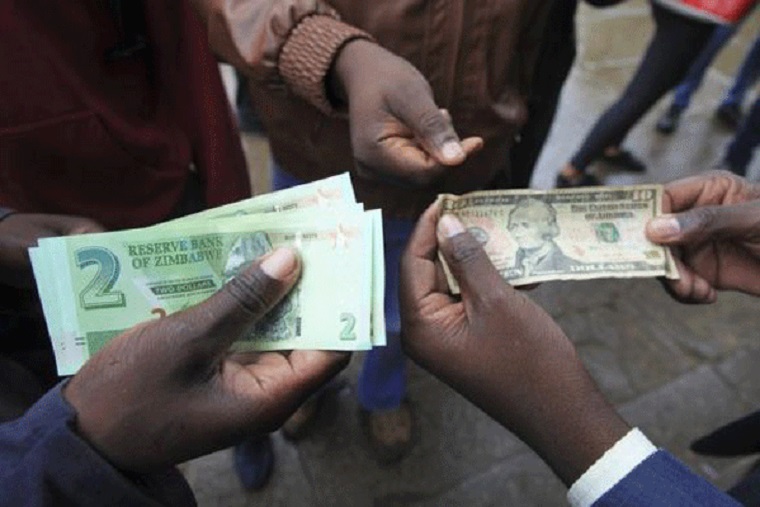 Zimbabwe’s Minister of Finance Mthuli Ncube should allow the real time gross settlement dollar and the bond note to trade with the United States dollar initially at 5:1, John Legat, the chief executive of one of Zimbabwe’s leading asset management companies, says in his latest newsletter.
Zimbabwe’s Minister of Finance Mthuli Ncube should allow the real time gross settlement dollar and the bond note to trade with the United States dollar initially at 5:1, John Legat, the chief executive of one of Zimbabwe’s leading asset management companies, says in his latest newsletter.
He says the decision by the Reserve Bank of Zimbabwe to re-introduce foreign currency accounts at the beginning of this month was a clear admission that the two currencies- the US dollar and the RTGS$ and Bond note- are different.
This was also the message that the market confirmed soon after the announcement as the RTGS$ fell to 5:1 while the Old Mutual Implied Rate fell from 2.5 to 8.75 to the US dollar.
“That effectively implies that an RTGS$ is worth 11 cents of a real USD,” Legat says.
He says though the panic and the price hikes that followed were beyond any rational levels, the message was clear.
“The hyperinflation years are fresh in the minds of most Zimbabweans which has rightly resulted in a lack of trust in Zimbabwe’s economic and monetary authorities, hence our consistent argument that a local currency will never be sustainable for very long for years if not decades to come,” he says.
“If this new government of the second republic is to be taken seriously, then it is pointless to maintain this 1:1 illusion.
“Looking at the monthly economic bulletins publi9shed by the RBZ, actual cash should amount to around 20% of all deposits.
“As such a rate of 5RTGS$ to 1USD would be about right on a worst case scenario in part because those numbers exclude any foreign currency that might be held outside of the banks and under mattresses or in the informal sector.”
Legat says the government should also allow banks and the private sector to trade between the two accounts and thereby formalize an exchange rate between RTGS$ and USD that is set by the free market.
“Interest rates on the two accounts also need to be liberalized with higher rates being offered for the RTGS$ vs USD rates. This could result in the RTGS$ strengthening against the USD thereby halting the slide,” he says.
But he adds: “Critical to RTGS stability though will be the immediate cessation of RTGS$ creation in order to fund government expenditure.”
Legat argues that some semblance of confidence will only come when the government implements its stated economic reforms, the core of which is to run a balanced budget and cease creating RTGS$.
Ncube initially welcomed the fall of the bond note and RTGS$ saying he could not argue with the market but he later changed to the government position that the two are at par and is negotiating with Afreximbank to guarantee the surrogate currency.
The Finance Minister is expected to present his budget for 2019 at the end of next month and this will give a clear indication of where the country is heading.
President Emmerson Mnangagwa has, however, promised the nation that people will not lose their money, but people are not yet convinced. They are buying anything and everything they can lay their hands own to turn their money into assets of some sort.
(1103 VIEWS)






0 Comments